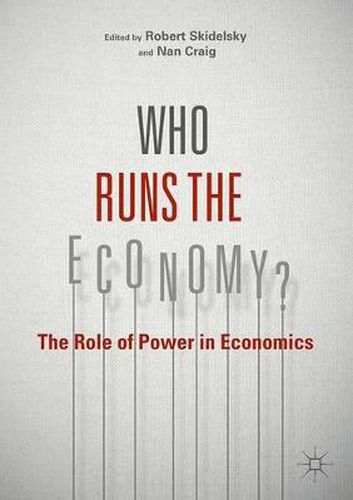Readings Newsletter
Become a Readings Member to make your shopping experience even easier.
Sign in or sign up for free!
You’re not far away from qualifying for FREE standard shipping within Australia
You’ve qualified for FREE standard shipping within Australia
The cart is loading…






This title is printed to order. This book may have been self-published. If so, we cannot guarantee the quality of the content. In the main most books will have gone through the editing process however some may not. We therefore suggest that you be aware of this before ordering this book. If in doubt check either the author or publisher’s details as we are unable to accept any returns unless they are faulty. Please contact us if you have any questions.
Since the financial crisis of 2008 and the following Great Recession, there has been surprisingly little change in the systems of ideas, institutions and policies which preceded the crash and helped bring it about. ‘Mainstream’ economics carries on much as it did before. Despite much discussion of what went wrong, very little has substantially changed. Perhaps the answer has something to do with power; a subject on which economics is unusually quiet. Whilst economics may be able to discuss bargaining power and market power, it fails to explore the reciprocal connections between economic ideas and politics: the political power of economic ideas on the one side, and the influence of power structures on economic thought on the other. This book explores how the supposedly neutral discipline of economics does not simply describe human behaviour, but in fact shapes it.
$9.00 standard shipping within Australia
FREE standard shipping within Australia for orders over $100.00
Express & International shipping calculated at checkout
This title is printed to order. This book may have been self-published. If so, we cannot guarantee the quality of the content. In the main most books will have gone through the editing process however some may not. We therefore suggest that you be aware of this before ordering this book. If in doubt check either the author or publisher’s details as we are unable to accept any returns unless they are faulty. Please contact us if you have any questions.
Since the financial crisis of 2008 and the following Great Recession, there has been surprisingly little change in the systems of ideas, institutions and policies which preceded the crash and helped bring it about. ‘Mainstream’ economics carries on much as it did before. Despite much discussion of what went wrong, very little has substantially changed. Perhaps the answer has something to do with power; a subject on which economics is unusually quiet. Whilst economics may be able to discuss bargaining power and market power, it fails to explore the reciprocal connections between economic ideas and politics: the political power of economic ideas on the one side, and the influence of power structures on economic thought on the other. This book explores how the supposedly neutral discipline of economics does not simply describe human behaviour, but in fact shapes it.